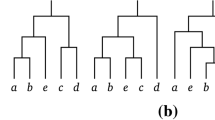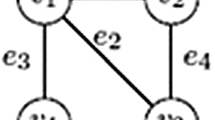Summary.
We show that many combinatorial algorithms which generate certain objects of a given size systematically, actually follow a simple pattern, when the objects are coded appropriately as words in a suitable ordered alphabet. This observation implies a complete average-case analysis of a type of algorithm generating these words lexicographically. This analysis can be carried out even in cases where no information about the algorithm itself is available. We demonstrate our results by discussing various concrete applications, such as the generation of words in a given regular language, the generation of permutations, the generation of subsets of a given set, the generation of semi-Dyck words, the generation of Motzkin words, the generation of \(t\)–ary ordered trees according to Ruskey and Zaks, the generation of ordered trees with bounded height and the generation of various classes of 0–balanced ordered trees.
Similar content being viewed by others
Author information
Authors and Affiliations
Additional information
Received: 5 May 1995 / 29 January 1997
Rights and permissions
About this article
Cite this article
Kemp, R. Generating words lexicographically: An average-case analysis. Acta Informatica 35, 17–89 (1998). https://doi.org/10.1007/s002360050114
Issue Date:
DOI: https://doi.org/10.1007/s002360050114




